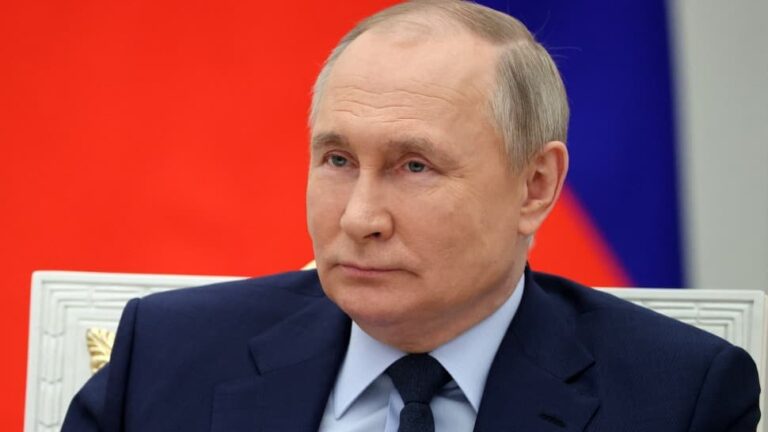
[ad_1]
New Delhi: The International Criminal Court (ICC) this week issued an arrest warrant against Russian President Vladimir Putin, accusing him of the war crime of illegally deporting hundreds of children from Ukraine. In its first warrant for Ukraine, the ICC called for Putin’s arrest on suspicion of unlawful deportation of children and unlawful transfer of people from the territory of Ukraine to the Russian Federation since February 24, 2022.
“Hundreds of Ukrainian children have been taken from orphanages and children’s homes to Russia,” ICC chief prosecutor Karim Khan said in a statement on Friday (March 17, 2023).
“Many of these children, we allege, have since been given up for adoption in the Russian Federation,” the statement added.
The alleged acts “demonstrate an intention to permanently remove these children from their own country. At the time of these deportations, the Ukrainian children were protected persons under the Fourth Geneva Convention.”
Khan said his office will continue looking for additional suspects and “will not hesitate to submit further applications for warrants of arrest when the evidence requires us to do so.”
Ukraine has said more than 16,000 children have been illegally transferred to Russia or Russian-occupied territories in Ukraine.
A US-backed report by Yale University researchers last month said Russia has held at least 6,000 Ukrainian children in at least 43 camps and other facilities as part of a “large-scale systematic network”.
Vladimir Putin can be detained if he sets foot on ICC member states’ territory
The International Criminal Court’s 123 member states are obliged to detain and transfer Vladimir Putin — who has now become the third serving president to be the target of an ICC arrest warrant after Sudan’s Omar al-Bashir and Libya’s Muammar Gaddafi — if he sets foot on their territory.
Putin, however, is unlikely to see the inside of a cell in The Hague, Netherlands, where the ICC is situated, as he may not travel abroad to a country where he might be arrested.
His war crimes arrest warrant could hurt his ability to travel freely and meet other world leaders, who may feel less inclined to speak to a wanted man.
What is ICC, which has issued arrest warrant against Vladimir Putin?
The International Criminal Court was established in 2002 to prosecute war crimes, crimes against humanity, genocide and the crime of aggression when member states are unwilling or unable to do so themselves. The ICC has 123 member states and can prosecute crimes committed by nationals of member states or on the territory of member states by other actors. Russia is not a member and neither are China, the United States, or India.
According to media reports, the ICC judges have issued 38 arrest warrants and 21 people have been held in the ICC detention centre and have appeared before the court. As many as 14 people remain at large.
Charges have been dropped against five people due to their deaths and the judges have issued 10 convictions and four acquittals.
International Criminal Court’s past actions
Sudan’s former president Omar al-Bashir and Libya’s Muammar Gaddafi are the only other leaders who have been indicted by the ICC while serving as head of state.
Charges against Gaddafi were terminated after he was overthrown and killed in 2011, while Bashir, who was indicted in 2009 for genocide in Darfur, remained in office for another decade until being toppled in a coup. He has since been prosecuted in Sudan for other crimes but has not been handed to the ICC.
While in office, he travelled to a number of Arab and African countries, including ICC member states Chad, Djibouti, Jordan, Kenya, Malawi, South Africa, and Uganda, which declined to detain him. The court rebuked those countries or referred them to the U.N. Security Council for non-compliance.
The ICC has tried one former head of state after he left office: former Ivorian President Laurent Gbagbo, who was acquitted of all charges in 2019 after a three-year trial.
Kenya’s President William Ruto and his predecessor Uhuru Kenyatta were both charged by the ICC before they were elected. The charges against both men have since been dropped. Kenyatta is the only leader to have appeared before the ICC while still serving in office.
[ad_2]
Source link